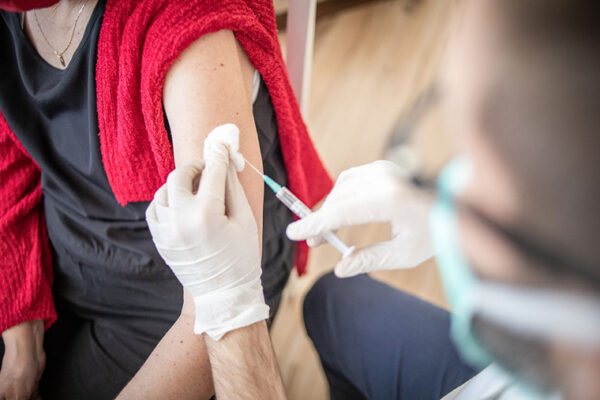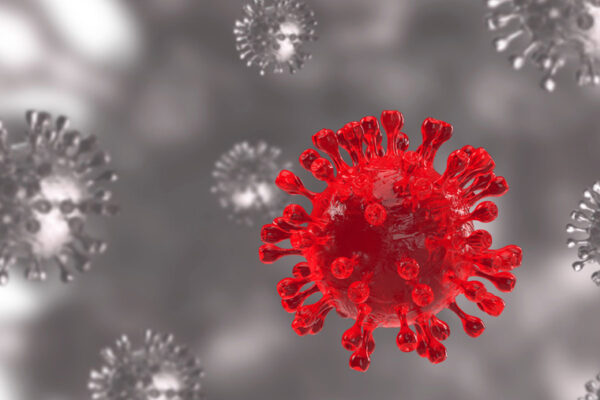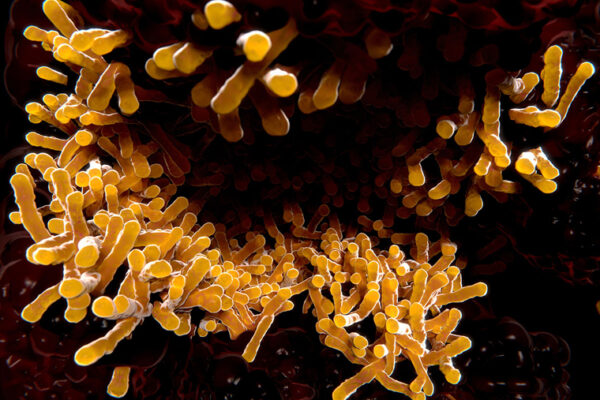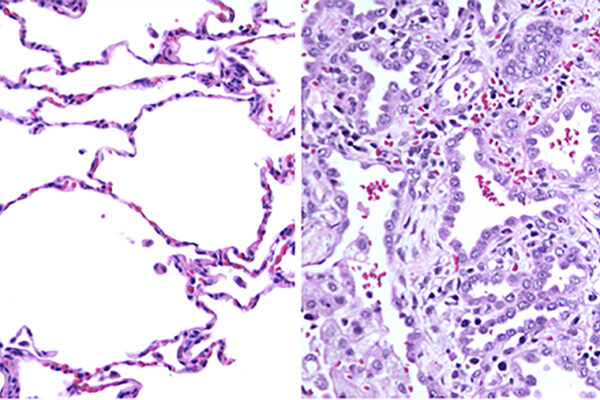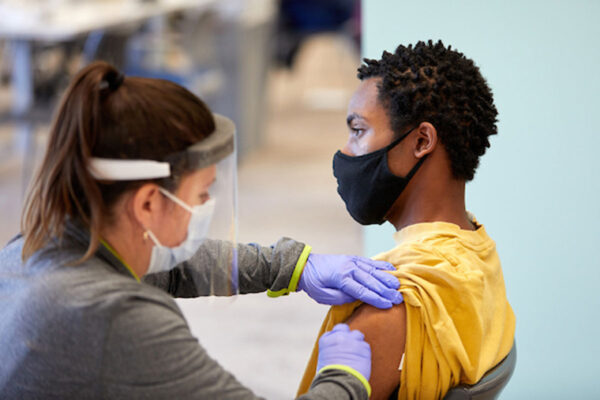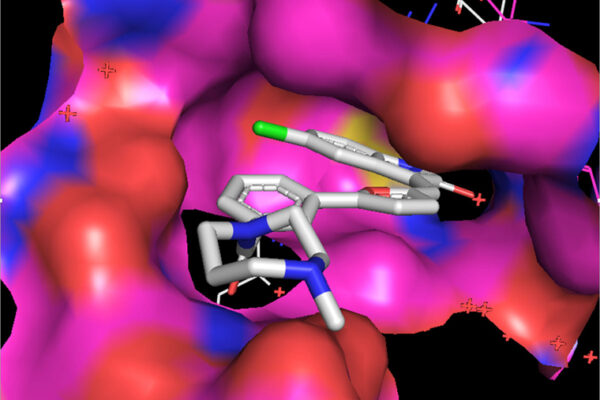Washington University participates in clinical trial of Moderna omicron booster
Washington University School of Medicine is participating in a nationwide phase 2 clinical trial to evaluate whether an investigational omicron-specific booster of the Moderna COVID-19 vaccine is safe and capable of eliciting a strong immune response.
Researchers unravel omicron’s secrets to better understand COVID-19
In two recent studies, researchers at Washington University School of Medicine found evidence that the omicron variant of the virus that causes COVID-19 causes less severe disease than previous variants — at least in rodents — but that many antibody-based therapies may not be effective against it.
COVID-19 infections increase risk of heart conditions up to a year later
An analysis of federal health data indicates that people who have had COVID-19 are at increased risk of developing cardiovascular complications within the first month to a year after infection, according to researchers at Washington University School of Medicine and the Veterans Affairs St. Louis Health Care System.
Possible new method identified to assess severity of TB infection
Researchers at Washington University School of Medicine have discovered a molecule in the lungs of tuberculosis (TB) patients that reflects the levels of TB-causing bacteria in the lungs. The findings may represent a step toward more tailored treatment regimens and better patient outcomes.
Researchers solve medical mystery of deadly illness in young child
New research from Washington University School of Medicine has solved the medical mystery of why a 2-year-old child — seemingly healthy at birth — succumbed to an undiagnosed rare illness.
Home-monitoring program for COVID-19 is effective, bridges digital divide
A home-based health monitoring program developed by Washington University School of Medicine and BJC HealthCare has proven invaluable in helping to track the progress of patients who test positive for the virus but aren’t sick enough to be hospitalized.
Engineering, medical schools partner for women’s health tech initiative
Researchers at the McKelvey School of Engineering and the School of Medicine at Washington University are launching the Women’s Health Technologies Initiative, which will focus on innovative therapies supporting female reproductive health.
Improving health of mothers, infants aim of imaging tech to monitor contractions
Researchers at Washington University School of Medicine have received three grants totaling more than $6.8 million to advance research on a novel imaging system to monitor uterine contractions. The electromyometrial imaging system, called EMMI, was invented and developed at Washington University.
What makes an mRNA vaccine so effective against severe COVID-19?
A new study by researchers at Washington University School of Medicine and St. Jude Children’s Research Hospital helps explain why mRNA vaccines have been so successful at preventing severe disease.
Grants fund drug development for devastating tropical diseases
Researchers at Washington University School of Medicine are working to develop new treatments for two types of devastating parasitic infections common in sub-Saharan Africa and Central and South America: river blindness and intestinal worm infections.
Older Stories
